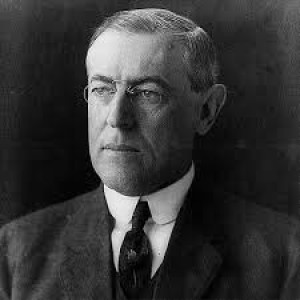
- Podcast Features
-
Monetization
-
Ads Marketplace
Join Ads Marketplace to earn through podcast sponsorships.
-
PodAds
Manage your ads with dynamic ad insertion capability.
-
Apple Podcasts Subscriptions Integration
Monetize with Apple Podcasts Subscriptions via Podbean.
-
Live Streaming
Earn rewards and recurring income from Fan Club membership.
-
Ads Marketplace
- Podbean App
-
Help and Support
-
Help Center
Get the answers and support you need.
-
Podbean Academy
Resources and guides to launch, grow, and monetize podcast.
-
Podbean Blog
Stay updated with the latest podcasting tips and trends.
-
What’s New
Check out our newest and recently released features!
-
Podcasting Smarter
Podcast interviews, best practices, and helpful tips.
-
Help Center
-
Popular Topics
-
How to Start a Podcast
The step-by-step guide to start your own podcast.
-
How to Start a Live Podcast
Create the best live podcast and engage your audience.
-
How to Monetize a Podcast
Tips on making the decision to monetize your podcast.
-
How to Promote Your Podcast
The best ways to get more eyes and ears on your podcast.
-
Podcast Advertising 101
Everything you need to know about podcast advertising.
-
Mobile Podcast Recording Guide
The ultimate guide to recording a podcast on your phone.
-
How to Use Group Recording
Steps to set up and use group recording in the Podbean app.
-
How to Start a Podcast
-
Podcasting
- Podcast Features
-
Monetization
-
Ads Marketplace
Join Ads Marketplace to earn through podcast sponsorships.
-
PodAds
Manage your ads with dynamic ad insertion capability.
-
Apple Podcasts Subscriptions Integration
Monetize with Apple Podcasts Subscriptions via Podbean.
-
Live Streaming
Earn rewards and recurring income from Fan Club membership.
-
Ads Marketplace
- Podbean App
- Advertisers
- Enterprise
- Pricing
-
Resources
-
Help and Support
-
Help Center
Get the answers and support you need.
-
Podbean Academy
Resources and guides to launch, grow, and monetize podcast.
-
Podbean Blog
Stay updated with the latest podcasting tips and trends.
-
What’s New
Check out our newest and recently released features!
-
Podcasting Smarter
Podcast interviews, best practices, and helpful tips.
-
Help Center
-
Popular Topics
-
How to Start a Podcast
The step-by-step guide to start your own podcast.
-
How to Start a Live Podcast
Create the best live podcast and engage your audience.
-
How to Monetize a Podcast
Tips on making the decision to monetize your podcast.
-
How to Promote Your Podcast
The best ways to get more eyes and ears on your podcast.
-
Podcast Advertising 101
Everything you need to know about podcast advertising.
-
Mobile Podcast Recording Guide
The ultimate guide to recording a podcast on your phone.
-
How to Use Group Recording
Steps to set up and use group recording in the Podbean app.
-
How to Start a Podcast
-
Help and Support
- Discover

On this day in Labor History the year was 1916.
That was the day that the Federal Employees Compensation Act was signed into law by President Woodrow Wilson.
The act was sponsored by Senator John Kern, a Democrat from Indiana, and Daniel McGillicuddy, a Democratic Congressman from Maine.
The act provided compensation for federal civil service employees that lost wages because they were hurt or killed on the job.
There was great debate at the time over whether employees injured at work deserved to be compensated.
Before the turn of the twentieth century, those who sustained workplace injuries had little recourse.
Employers blamed workers for accidents and typically refused compensation leaving families destitute.
Edward Gainor, the President of the National Association of Letter Carriers explained the debate around the 1916 proposal saying, “The only question, the fundamental question, involved in this discussion is whether or not society should bear the burden of the injured worker in any industry.”
Increasingly, some lawmakers were beginning to make the case that society should indeed bear that burden.
Workers and labor leaders organized around issues of work place safety and demanded a compensation if they were injured on the job.
The law providing such a safety net for federal employees passed through the House of Representatives by an overwhelming margin of 288 to 6.
Although the Act only applied to federal employees, it was an important step forward in recognizing that all workers deserved to be compensated for workplace injuries.
The federal Office of Workers Compensation Programs that operates today traces its history directly back to the 1916 act.
And because of this 1916 act some Three million federal employees and their families are covered under the acts protections.
More Episodes
 2025-05-08
2025-05-08
 2025-05-06
2025-05-06
 2025-05-05
2025-05-05
 2025-05-04
2025-05-04
 2025-05-02
2025-05-02
 2025-05-01
2025-05-01
 2025-04-29
2025-04-29
 2025-04-28
2025-04-28
 2025-04-27
2025-04-27
 2025-04-25
2025-04-25
 2025-04-24
2025-04-24
 2025-04-23
2025-04-23
 2025-04-22
2025-04-22
 2025-04-21
2025-04-21
 2025-04-20
2025-04-20
 2025-04-19
2025-04-19
Create your
podcast in
minutes
- Full-featured podcast site
- Unlimited storage and bandwidth
- Comprehensive podcast stats
- Distribute to Apple Podcasts, Spotify, and more
- Make money with your podcast
It is Free
- Privacy Policy
- Cookie Policy
- Terms of Use
- Consent Preferences
- Copyright © 2015-2025 Podbean.com


